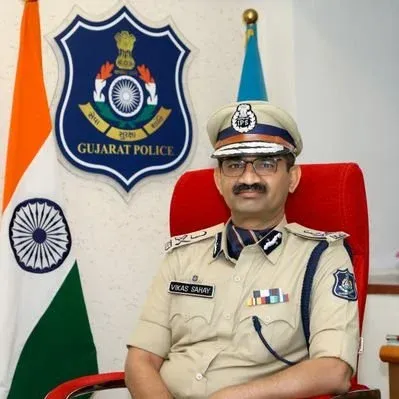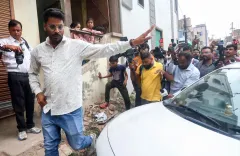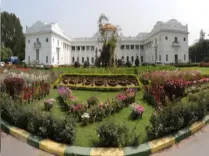Did Gujarat Police Catch Over 200 Illegal Bangladeshi Immigrants?

Synopsis
Key Takeaways
- Gujarat Police have arrested over 200 illegal Bangladeshi immigrants.
- The operation has entered the deportation phase.
- Areas like Ankleshwar and Bharuch are hotspots for undocumented workers.
- Employers must provide proof of legal status for migrant workers.
- Collaboration with BSF aims for effective tracking of infiltrators.
Gandhinagar, June 19 (NationPress) Gujarat Police have apprehended over 200 Bangladeshi nationals who were residing illegally throughout various regions of the state. This operation, which has unfolded over the last few days, has now progressed to the deportation stage, with authorities commencing legal processes to repatriate the detained individuals.
This information was confirmed by Gujarat's Director General of Police (DGP) Vikas Sahay, who shared an update on the social media platform X, stating: “In the past 100 hours, more than 200 illegal Bangladeshis have been apprehended by Gujarat Police. The process for their deportation is currently underway.”
Among those detained, 44 individuals were captured by the Bharuch Police's Special Operations Group (SOG) in Bharuch city, Ankleshwar city, and the Ankleshwar GIDC area. These locales have been identified as hotspots for undocumented workers engaged in informal sectors.
The majority of the illegal migrants had established residence in industrial and semi-urban areas, often taking up jobs in construction, agriculture, domestic services, or small factories for meager wages.
Areas such as Ankleshwar GIDC, Chandola, and parts of Surat and Ahmedabad have become known as infiltration hotspots due to high labor demand and inadequate documentation checks.
Migrants typically enter India through porous land borders in eastern states like West Bengal and Assam, before advancing westward with assistance from trafficking agents and connected intermediaries.
Gujarat’s Anti-Terrorism Squad (ATS) and local police have also uncovered a widespread use of forged documents, including Aadhaar, PAN, ration cards, and even Indian passports, utilized to establish residency and acquire jobs.
The primary factor driving this infiltration is the economic struggle in Bangladesh, along with the availability of employment and support networks within Gujarat’s informal economy.
Many migrants arrive through human trafficking channels that provide them with false identity papers and connect them with employers willing to pay below-market wages. These illicit setups are often challenging to trace unless targeted by coordinated enforcement actions.
The Gujarat government has reacted by launching one of its most extensive enforcement campaigns to date, involving units such as the Crime Branch, ATS, Special Operations Group (SOG), and Anti-Human Trafficking Unit (AHTU).
Employers in critical districts are now required to submit proof of identity and legal status for all migrant workers as part of a new standard operating procedure.
As deportation efforts continue, state authorities are also collaborating with the Border Security Force (BSF) and central agencies to ensure long-term monitoring and repatriation of infiltrators.







